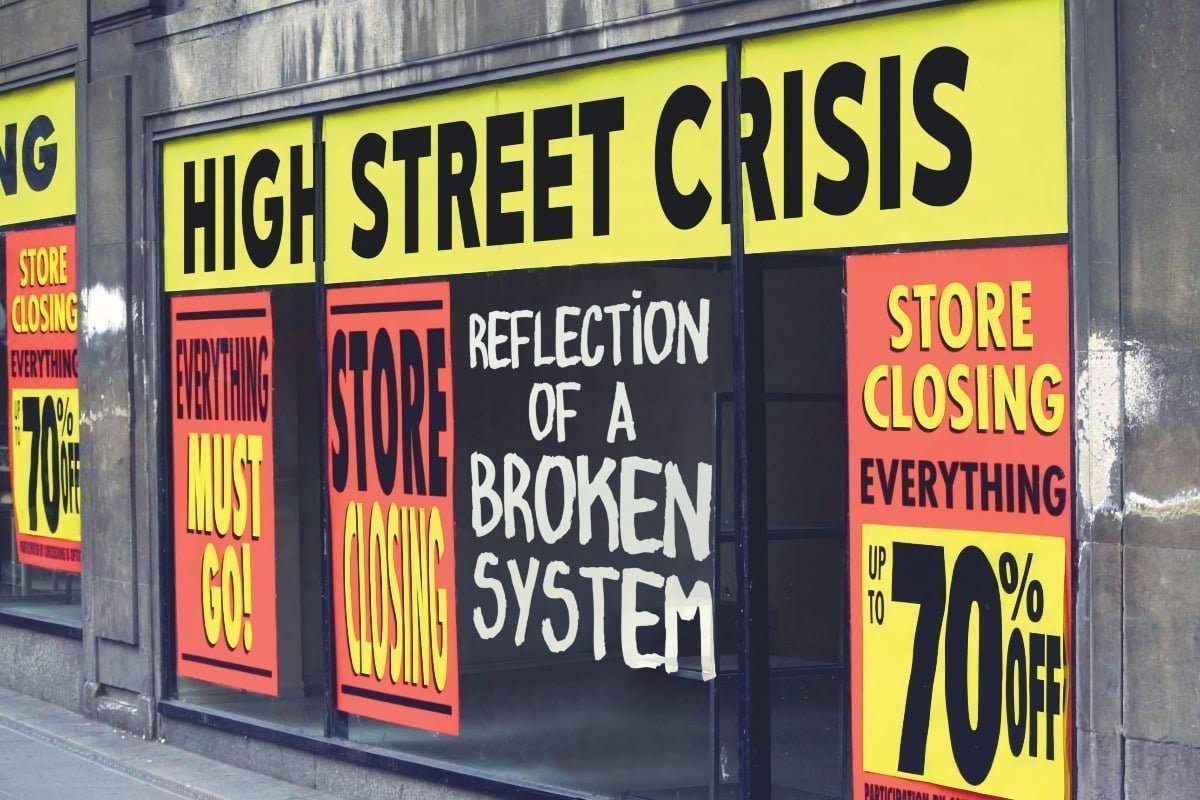2018 was a devastating year for British retailers, with the collapse of many household names. The period ahead offers little respite.
“Britain’s retailers suffered their worst Christmas trading since the depths of the global financial crisis, with heavy price cutting failing to persuade worried customers to splash out.” (Financial Times: 11/01/2019)
These are gloomy signs indeed for the British economy. Due to the Christmas shopping rush, December is usually one of the best months of the year for traders. But, over ten years since the financial crash of 2008, British workers are clearly not feeling like there has been any sort of recovery.
Any ‘recovery’ or ‘growth’ or talk of markets ‘being up’ might correspond with the bulging pockets of stockbrokers and CEOs. But this is not reflected in the real economy or the experiences of millions of ordinary people.
Britain’s high street crisis and stagnant real economy is a clear indicator of the sickness of capitalism in general. As businesses go under and lose out, so do workers. In order to restore profits and satisfy shareholders, workers are made redundant and pay is squeezed.
Even so-called ‘co-operatives’ show their true nature as they are forced to obey the laws of the market. As the FT of 11 January also reported: “Employee-owned John Lewis said it might have to axe its staff profit share — for the first time since 1953 — after it confirmed profits would be substantially lower this year.”
Every crisis has its relative winners and losers. Surviving corporations swallow up the failed ones, and workers’ conditions are attacked ever more in order to restore profitability to the system.
For example, while supermarkets such as Sainsbury’s and M&S had a devastating festive period, Aldi and Lidl saw their sales increase as they edged out their more expensive counterparts with lower prices. Press reports now warn that Tesco could be cutting as many as 15,000 jobs over the next period, on top of the 10,000 already cut since 2014.
It was not only the likes of M&S and Debenhams where sales collapsed in this period. Retail sales were down in general, by 0.9% from November to December, according to the Office for National Statistics.
A staggering recent headline in the Guardian indicated that 2019 would be even worse than 2018 for workers, stating that “over 23,000 shops and 175,000 high street jobs (are) predicted to go in 2019”.
Already, M&S have announced further store closures – mainly in working class towns and areas. In addition, the ongoing shutting of bank branches – with the Santander closures announced for later this year just the latest example – has further underlined the gloom now hitting Britain’s already empty high streets.
Workers are being politicised by the effects of this capitalist crisis. As we stagger towards another recession, the labour movement must mobilise around clear socialist policies to fight the attacks on working class communities. It is only the organised working class that can put this failed capitalist system out of its misery.






